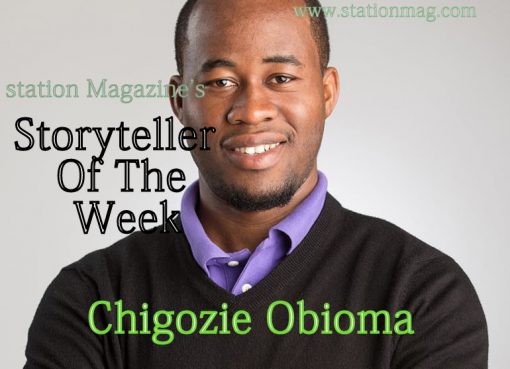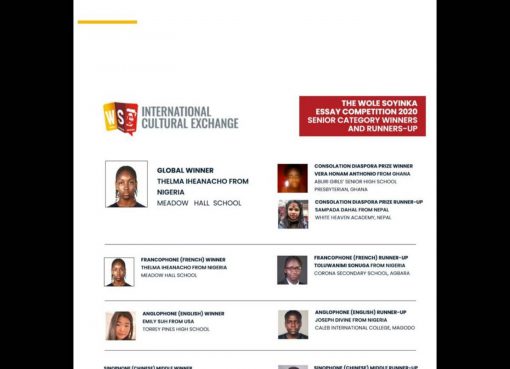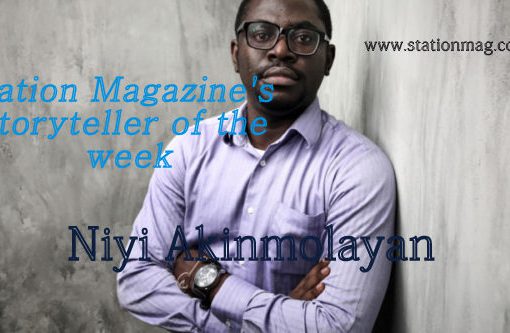Chigozie Obioma is a storyteller and an assistant professor of Literature and Creative Writing at the University of Nebraska-Lincoln.
His first book, “The Fisherman” which has its settings in Akure is a metaphor for Nigeria.
The Fishermen was named the best book of the year for 2015 by The Observer (UK), The Economist, The Financial Times, the Wall Street Journal, Apple/iBook, Book Riot, the Minnesota Star Tribune, NPR, Library Journal, Canadian Broadcasting Corporation, the New Zealand Listener, Relevant Magazine, British GQ, and others.
Obioma was recently nominated for Booker Prize.
Read Excerpt of Chapter One of “The Fishermen”:
We were fishermen:
My brothers and I became fishermen in January of 1996
after our father moved out of Akure, a town in the west of Nigeria,
where we had lived together all our lives. His employer, the Central
Bank of Nigeria, had transferred him to a branch of the bank in
Yola—a town in the north that was a camel distance of more than
one thousand kilometres away—in the first week of November of
the previous year. I remember the night Father returned home with
his transfer letter; it was on a Friday. From that Friday through that
Saturday, Father and Mother held whispering consultations like
shrine priests. By Sunday morning, Mother emerged a different
being. She’d acquired the gait of a wet mouse, averting her eyes as she
went about the house. She did not go to church that day, but stayed
home and washed and ironed a stack of Father’s clothes, wearing
an impenetrable gloom on her face. Neither of them said a word
to my brothers and me, and we did not ask. My brothers—Ikenna,
Boja, Obembe—and I had come to understand that when the two
ventricles of our home—our father and our mother—held silence as
the ventricles of the heart retain blood, we could flood the house if
we poked them. So, at times like these, we avoided the television in
the eight-columned shelf in our sitting room. We sat in our rooms,
studying or feigning to study, anxious but not asking questions.
While there, we stuck out our antennae to gather whatever we
could of the situation.By nightfall on Sunday, crumbs of information began to fall from
Mother’s soliloquy like tots of feathers from a richly-plumed bird:
“What kind of job takes a man away from bringing up his growing
sons? Even if I were born with seven hands, how would I be able to
care for these children alone?”Although these feverish questions were directed to no one in
particular, they were certainly intended for Father’s ears. He was
seated alone on a lounge chair in the sitting room, his face veiled
with a copy of his favourite newspaper, the Guardian, half reading
and half listening to Mother. And although he heard everything she
said, Father always turned deaf ears to words not directly addressed
to him, the kind he often referred to as “cowardly words.” He
would simply read on, sometimes breaking off to loudly rebuke
or applaud something he’d seen in the newspaper—“If there is any
justice in this world, Abacha should soon be mourned by his witch
of a wife.” “Wow, Fela is a god! Good gracious!” “Reuben Abati
should be sacked!”—anything just to create the impression that
Mother’s lamentations were futile; whimpers to which no one was
paying attention.Before we slept that night, Ikenna, who was nearly fifteen and on
whom we relied for the interpretation of most things, had suggested
Father was being transferred. Boja, a year his junior, who would have
felt unwise if he didn’t appear to have any idea about the situation,
had said it must be that Father was travelling abroad to a “Western
world” just as we often feared he someday would. Obembe who,
at eleven, was two years my senior, did not have an opinion. Me
neither. But we did not have to wait much longerThe answer came the following morning when Father suddenly
appeared in the room I shared with Obembe. He was dressed in
a brown T-shirt. He placed his spectacles on the table, a gesture
requesting our attention. “I will start living in Yola from today
onwards, and I don’t want you boys to give your mother any
troubles.” His face contorted when he said this, the way it did
whenever he wanted to drive the hounds of fear into us. He spoke
slowly, his voice deeper and louder, every word tacked nine-inches
deep into the beams of our minds. So that, if we went ahead and
disobeyed, he would make us conjure the exact moment he gave
us the instruction in its complete detail with the simple phrase “I
told you.”“I will call her regularly, and if I hear any bad news”—he struck
his forefinger aloft to fortify his words—“I mean, any funny acts at
all, I’ll give you the Guerdon for them.”He’d said the word “Guerdon”—a word with which he emphasized
a warning or highlighted the retribution for a wrong act—with so
much vigour that veins bulged at both sides of his face. This word,
once pronounced, often completed the message. He brought out two
twenty-naira notes from the breast pocket of his coat and dropped them on our study table.“For both of you,” he said, and left the room.
Obembe and I were still sitting in our bed trying to make sense
of all that when we heard Mother speaking to him outside the house
in a voice so loud it seemed he was already far away.
“Eme, remember you have growing boys back here,” she’d said.
“I’m telling you, oh.”She was still speaking when Father started his Peugeot 504. At
the sound of it, Obembe and I hurried from our room, but Father
was already driving out of the gate. He was gone…

Subscribe To Daily Email To Get an Ebook on Online Business Ideas
Get a Copy of my ebook on Online Business ideas that Assure You of Financial Freedom.
We won't disturb you with spams or temper with your privacy










Comment here